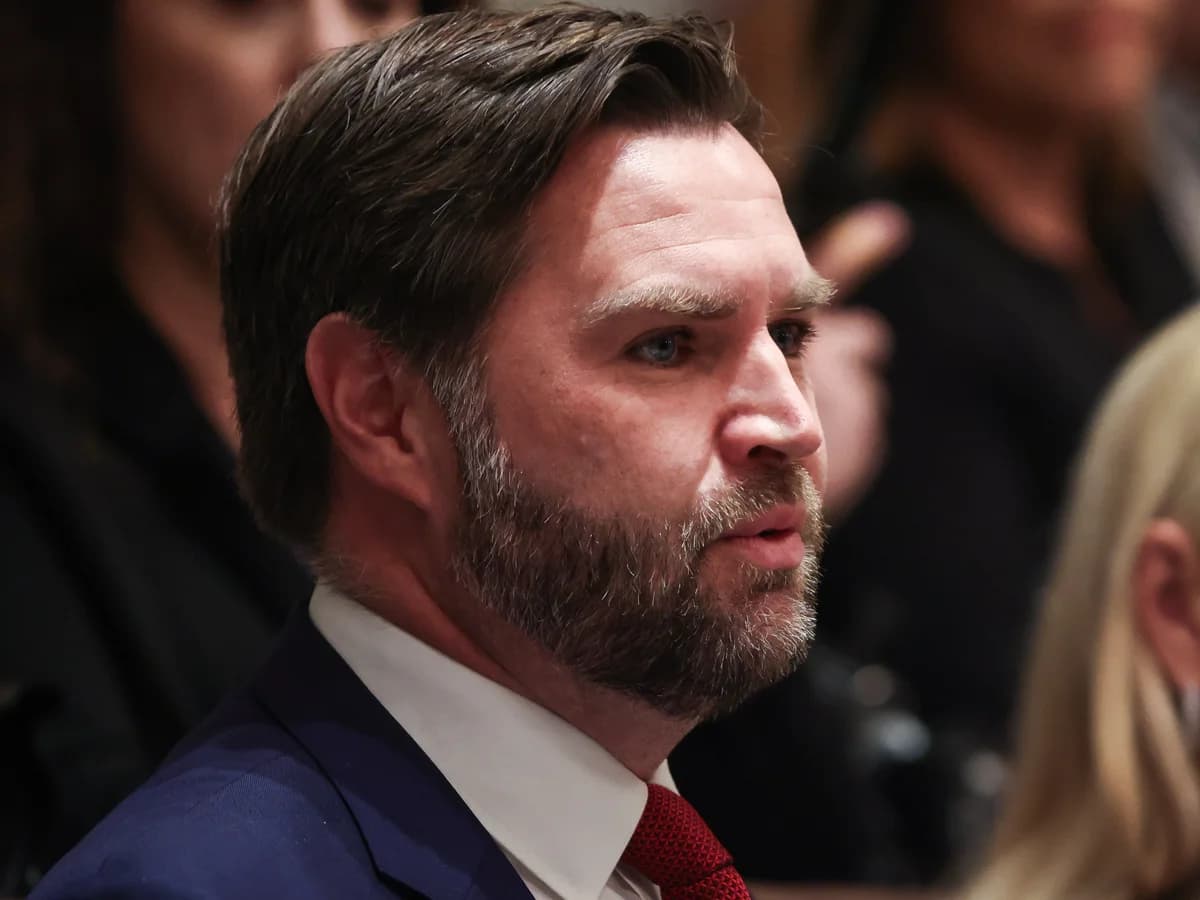We're loading the full news article for you. This includes the article content, images, author information, and related articles.
US Vice President JD Vance has downplayed racist and sexist messages exchanged by Republican operatives aged 24 to 35, sparking debate on accountability and youth involvement in politics, a topic with resonance in Kenya's own political landscape.

US Vice President JD Vance has drawn criticism for dismissing hundreds of racist and sexist text messages exchanged by Republican operatives, aged 24 to 35, as mere "edgy, offensive jokes" made by "kids." The messages, which included statements such as "I love Hitler" and a reference to rape as "epic," were revealed in a report by Politico. Vance, speaking on the 'Charlie Kirk Show' podcast on Wednesday, October 15, 2025, suggested that the individuals involved were much younger than their actual ages, which range from 24 to 35 years old.
This stance has ignited a bipartisan backlash, with calls for the operatives to resign or be removed from their positions within the Young Republican National Federation, the Republican Party's official organisation for members aged 18 to 40. The Federation itself described the exchanges as "unbecoming of any Republican."
The controversy surrounding Vance's comments comes amidst other significant political developments in the United States. On Wednesday, October 15, 2025, the US Supreme Court heard oral arguments in Callais v Louisiana, a high-stakes voting rights case. The court's conservative majority appears poised to potentially weaken a key provision of the Voting Rights Act, which prohibits electoral maps that dilute the voting power of minority groups.
Separately, US President Donald Trump confirmed on Wednesday, October 15, 2025, that he authorised the CIA to conduct covert operations in Venezuela. This decision has been met with strong condemnation from Venezuelan President Nicolás Maduro. President Trump also stated that the administration is "looking at land" for potential strikes on suspected drug cartels within Venezuela, following previous lethal strikes on alleged drug smugglers at sea. He claimed, without providing evidence, that each successful strike on a suspected drug smuggling speedboat saves 25,000 lives in the US.
In New York, billionaire Trump supporter Bill Ackman donated $1 million this week to Defend NYC, a Super PAC established by a former Trump campaign adviser to oppose Zohran Mamdani's mayoral campaign. This donation highlights the significant financial contributions influencing local political races.
The discussion around youth accountability and political engagement in the US offers a point of comparison with Kenya's own efforts to involve its substantial youth population in governance. In Kenya, individuals aged 18 to 35 are defined as youth, a demographic that constitutes over a third of the entire population and nearly 80% of Kenyans are under 35 years old. This significant demographic represents the largest political constituency in the country.
Despite their numbers, formal youth participation in Kenya's electoral and political spheres has historically been low, with insufficient representation in public policy and decision-making forums. However, recent years have seen an increase in youth involvement, with 35% of political party members in Kenya being young people as of 2022. The 2010 Kenyan Constitution introduced reforms to promote youth participation, including a youth quota for nominated positions. Devolution has also played a role in increasing youth inclusion, particularly at the county level.
Challenges persist, including mistrust in political leadership, internal party politics that hinder youth nominations, and financial constraints for young aspirants. The National Youth Council Act provides a legal framework for youth empowerment and their role in decision-making.
Kenya continues to grapple with the complexities of drug trafficking, a concern that resonates with the US administration's focus on drug interdiction. Kenya is a significant transit country for illicit drugs, including heroin and cocaine, and has a growing domestic user population. The country's extensive Indian Ocean coastline and inadequate security at the Port of Mombasa are exploited by drug trafficking organisations.
Corruption within government and business sectors further exacerbates the problem, with drug proceeds often used to influence political campaigns and officials. Despite these challenges, Kenya is implementing a multi-pronged strategy, including intelligence-led operations and a health-focused approach that offers alternatives to incarceration for drug users. Kenya has also partnered with the US Drug Enforcement Administration (DEA) to combat drug-related crimes.
The long-term implications of Vice President Vance's comments on youth political engagement in the US remain to be seen. Similarly, the full impact of the US Supreme Court's decision in Callais v Louisiana on future voting rights legislation is yet to be determined. In Kenya, while youth participation in politics is increasing, the effectiveness of current policies in addressing underlying issues such as political mistrust and financial barriers for young aspirants requires ongoing assessment.
Observers will be closely watching for further reactions to Vice President Vance's statements and any disciplinary actions taken against the Republican operatives involved. The Supreme Court's final ruling in Callais v Louisiana will have significant ramifications for voting rights in the US. In Kenya, continued efforts to enhance youth political participation and combat drug trafficking will be key areas of focus, particularly as the country prepares for future electoral cycles and strengthens its international partnerships in narcotics control.
Keep the conversation in one place—threads here stay linked to the story and in the forums.
Sign in to start a discussion
Start a conversation about this story and keep it linked here.
Other hot threads
E-sports and Gaming Community in Kenya
Active 9 months ago
The Role of Technology in Modern Agriculture (AgriTech)
Active 9 months ago
Popular Recreational Activities Across Counties
Active 9 months ago
Investing in Youth Sports Development Programs
Active 9 months ago